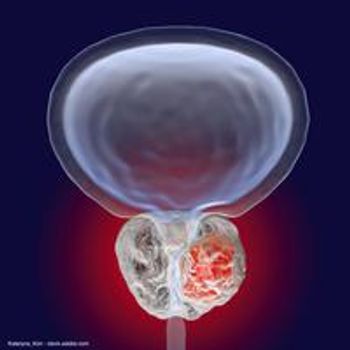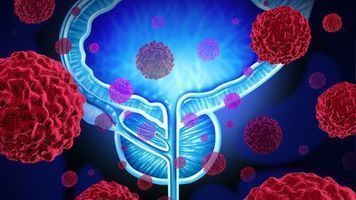
Prostate Cancer
Latest News

Latest Videos

CME Content
More News

“We certainly need to move away from a model of care that is follow up driven by tumor markers or imaging alone,” says Netty Kinsella, RN, MSc, PhD.

Learning curve for technique is short, but capital expenditures are required.

“There are many studies now that have shown that these doublets and triplets seem to be better than just ADT alone,” says William K. Oh, MD.

“I think we need to change the mindset that chemotherapy is a bad thing. It is a very good thing when given appropriately and when patients are more likely to get long-term benefit,” says Fred Saad, MD, FRCS.

"If adequate cancer control can be achieved by focal or partial-gland treatment, then the favorable adverse event profile could make this a preferred option for a number of men with localized intermediate-risk (and possibly selected high-risk) prostate cancer," writes Badar M. Mian, MD.

“It’s not only about prescribing medications or advising how to use it. It’s about support. It’s about checking how things are going. It’s about motivation when things are primarily not working. It’s about knowledge that things tend to improve with time, and certain functions can just recover independently,” says Marta Skrodzka, MD, PhD.

In the phase 3 KEYLYNK-010 trial, pembrolizumab/olaparib did not improve overall survival versus either abiraterone or enzalutamide in heavily pretreated patients with metastatic castration-resistant prostate cancer.

“I think one of the problems is that we do run out of treatments in many of these patients at some point,” says William K. Oh, MD.

“As [nurse specialists], we are uniquely placed in terms of supporting these men through their prostate cancer treatments, and then, obviously, through to their recovery afterwards,” says Netty Kinsella, RN, MSc, PhD.

“I think the take home message is that [IsoPSA is] an easy test to use,” says Eric A. Klein, MD.

“We have new therapies, both AR-targeted therapies, as well as the use of SBRT, or targeted radiotherapy, that have changed the landscape,” says William K. Oh, MD.

Bobby Liaw, MD; Vivek K. Narayan, MD, MS; Ashley E. Ross, MD, PhD; and Neal Shore, MD, FACS, provide closing thoughts and advice for the optimal management of advanced prostate cancer.

Experts in prostate cancer review the role of PSMA PET imaging in advanced prostate cancer and its impact on disease management.

Bobby Liaw, MD, and Vivek K. Narayan, MD, MS, share clinical pearls for the management of adverse events from ARI-directed therapy in advanced prostate cancer.

“We should be really trying to raise the profile of bladder symptoms [and] functional urology issues, and educating colleagues on how to inquire about and capture that information as effectively as possible,” says Jai Seth, MD, BSc, MSc, FRCS.

In this installment of the Urology Times' 50th Anniversary Innovation Celebration, Kara L. Watts, MD, discusses the emergence and increasing uptake of active surveillance as a management strategy for men with prostate cancer.

The filing is based on findings from the placebo-controlled phase 3 ARASENS trial.

"Active surveillance is an innovation because it's truly a departure from the idea that all prostate cancers or cancer, in general, needs to be treated," says Kara L. Watts, MD.

“I think initiating a conversation with a patient needs to start earlier, possibly even earlier than just at the point of giving them a diagnosis,” says Netty Kinsella, RN, MSc, PhD.

“The majority of patients were able to stay on the dose of the apalutamide,” says Mario E. Lacouture, MD.

“Whether a patient goes on to have radiation therapy, radical surgery, or focal therapy, or a whole host of other types of surgery or prostate cancer treatment that may follow, [that] can largely dictate where they may end up on the spectrum of having a bladder problem, a bladder outlet problem, or a urethral problem,” says Jai Seth, MD, BSc, MSc, FRCS.

“I think we're at a point where we have this luxury of many options, which is great, but we still need to continue to be really thoughtful in how we choose those options,” says Benjamin Lowentritt, MD, FACS.

“The idea is to develop strategies that reduce the likelihood of needing a biopsy or improving the sensitivity of the biopsy to find a high-grade cancer, one that's treatable,” says Eric A. Klein, MD.

Ashley E. Ross, MD, PhD, comments on the clinical significance of PSA response in patients with nmCRPC.

Vivek K. Narayan, MD, MS, reviews data from the SPARTAN trial in nmCRPC and discusses the importance of assessing health-related quality of life.












